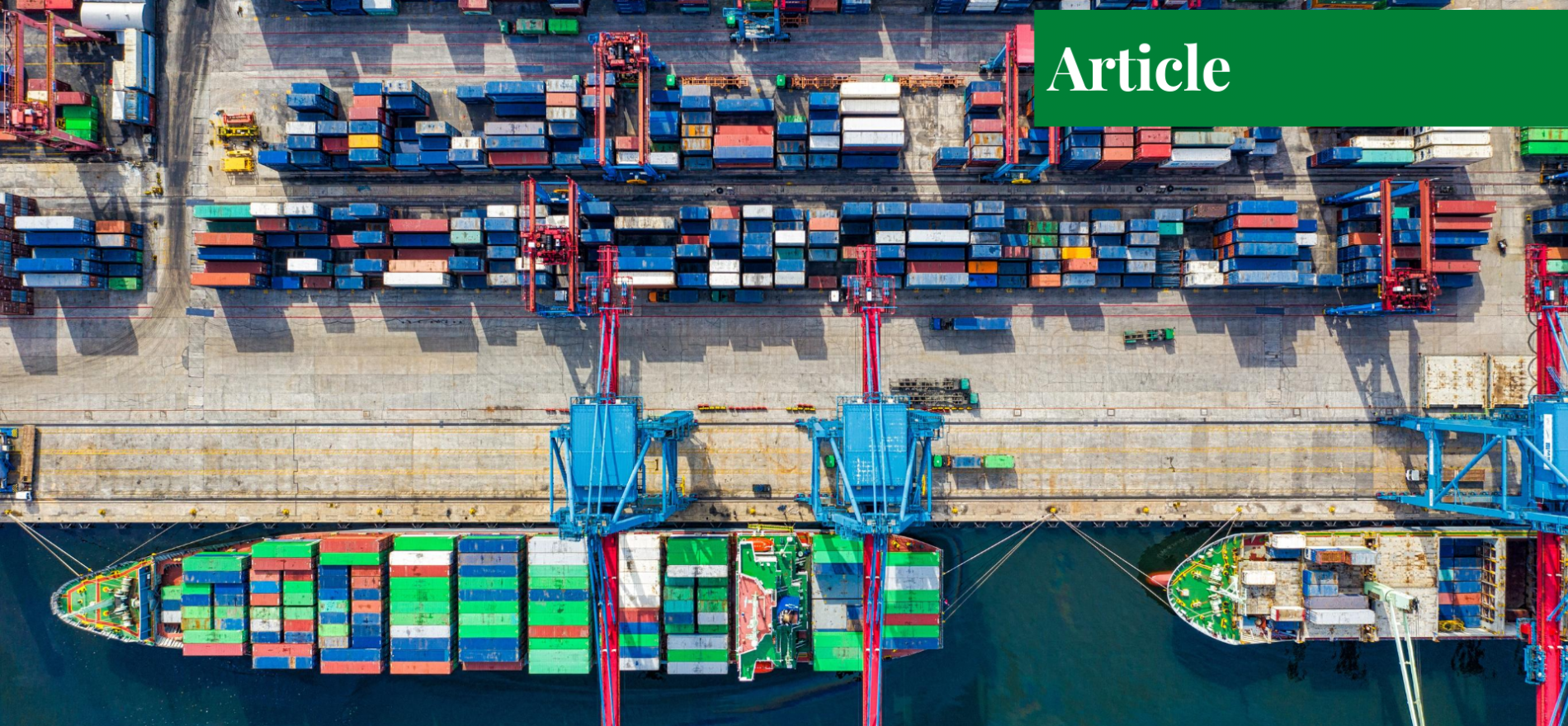Written in 2012
Introduction
Tensions between Pakistan and India have always been high mainly because of the Kashmir issue. There have been 3 major wars, high political animosity, and increased military tensions, which have led to generally insignificant trade relations in the past. Pakistan and India’s trade was around $147 million in 1950-51 close to 5% of their total world trade. After the wars in 1965 and 1971, trade was almost non-existent for 9 years (1965-1974) but in 1996 trade increased to $180 million when India granted Pakistan Most Favored Nation (MFN) status. Notwithstanding this, Pakistan and India have not been able to achieve their full potential of trade, but things are changing now as Pakistan has recently decided to grant India MFN status as well.
What does MFN mean? A country gives MFN status to that country with whom it wants to increase trade with. “Countries achieving most favored nation status are given specific trade advantages such as reduced tariffs on imported goods.” In other words, Islamabad has decided to lift barriers to sales of Indian goods. There are mixed reactions to this move from different sectors of Pakistan’s society from the agriculturists to the business community. Some are asserting that it is a respectable move and will help Pakistan foster economic strength as well as improve bilateral relations with India. The converse side, however, is not as optimistic due to Pakistan and India’s poor trade track record. Furthermore, they argue that Indian goods might dominate in the Pakistani markets and cause issues to the local producers. However, with new governments in both Pakistan and India, there is a window of opportunity once more to improve economic relations.
I believe that this is a positive step and will help Pakistan not just economically but also politically. Pakistan is going through a burgeoning crisis in almost every aspect (energy crisis, security issues, debt, and inflation) and desperately needs to make constructive changes to survive in the global environment. I will analyze both the positive and negative impacts of the MFN move, weigh them out, and try to highlight how the pros are greater than the cons.
Positives of MFN That Can Augment Trade
Firstly, the bilateral relationship with India will drastically improve and would help build a strong foundation for future co-operation and peace. Pakistan is stepping forward to improve relations with India, not just politically but also economically. India is a major player in the global market and has a huge population – Pakistan realizes this and hence wants to step forward to improve trade relations and this suits India just fine.
Secondly, consumers in Pakistan will benefit, as prices of Indian imports will be lower compared to those from the rest of the world, due to lower unit costs in India, as well as lower transportation costs. Pakistan’s official trade with India in 2009-10 was around $2 billion. This will increase dramatically as a SAARC report estimates the trade potential of both countries to be around $12 billion.
Other than the official trade, there is also a huge bulk of illegal trade (smuggling) that takes place between the two countries. According to sources, Pakistan receives $3 to $4 billion of Indian imports through illegal channels – therefore, bringing the smuggled trade under the official fold will help the economy of Pakistan. Furthermore, better trade relations between both countries will decrease the indirect trade. Indirect trade is the trade that occurs through third-party countries such as the UAE. This means that Indian goods will first go to the UAE, and from there make their way to Pakistan and vice versa. Indirect trade is estimated to be around $3-3.5 billion mostly through Dubai since direct trade is difficult. Therefore, mainstreaming direct trade will allow more revenues to come through.
Industries like cottage and tourism are also expected to greatly benefit from free trade. Pakistan has great potential for tourism, from Sindh’s history all the way to the picturesque Northern Areas. The move will help bring in tourism not just to India but also to Pakistan (which needs it more). Pakistan’s cottage industry (carpet making and other handicrafts) also has great potential. B exporting cottage industry goods to India, Pakistan’s small and medium-sized industries will make greater revenues. This is doubly important as many of the cottage industries are located in rural areas. Increased revenue to rural areas will benefit the poorer segments of society.
Other sectors expected to do well include cement and information technology (IT). “Pakistan and India can boost their mutual trade in the IT sector up to $5 billion through joint ventures, investment, and exchange of expertise”. There has even been talk of merging Pakistani and Indian IT companies to increase business and make greater revenues. The transportation industry will also greatly benefit. The revenue of Pakistan’s transportation companies would proliferate, as they would provide transport to different cities in India (and vice versa).
One other positive impact of MFN would be the liberalization of visas. The current visa process, being very bureaucratic, would eventually become more open and lenient due to a porous Pak-India border. Currently, the business visas granted by India to Pakistani citizens are single entry, for a short duration, and city-specific. This stringency makes it extremely incommodious for entrepreneurs to conduct business. Both Pakistan and India have realized this and are currently working on changing the existing visa policies to help businessmen expand their businesses.
The MFN move also grants India a major benefit i.e. it would get a direct route to Central Asia and Iran through Pakistan. This land route will cost the Indians less money to export or import goods from Central Asia because they can do this by trucks and lorries rather than airplanes and ships (which is more expensive). If a proper security check were in place at the borders, this route would save India a lot of money and subsequently allow Pakistan to make a hefty profit via royalties.
Finally, because of Indian products coming into Pakistan, it is believed that Pakistan’s industrial productivity and competitiveness will drastically augment. When there are similar products and substitutes available in the market it creates competition, which leads to industries trying to improve quality and reduce price – this will be beneficial for the consumers.
Negatives of MFN That Might Restrict Trade
The main worry is from Pakistan’s industries which have raised concerns that because of MFN and high tariff and non-tariff barriers, Pakistani products would not stand a chance in Indian markets. An example of this is Pakistan Pharmaceutical Manufacturers Association (PPMA); they have even said that the industry might shut down altogether. The PPMA says that medicines should be on the negative list. The PPMA asserts that due to the size of the Indian pharmaceutical market being 10 times larger than Pakistan’s and being a global player, Pakistan’s pharmaceutical industry will stand no chance. The industries are arguing to level the playing field by lowering tariff rates or putting their products on the negative list. The issues of high trade barriers must be rectified.
Secondly, the trading infrastructure between the two countries such as railways and roads is subpar. This is primarily due to the poor trade relations between Pakistan and India in the past due to political tensions. Inadequate road and rail linkages make trade costly and cumbersome. If this remains unchecked, both countries will not be able to fully exploit the trade potential and will incur higher costs.
People are also arguing whether it is the right time to grant MFN status. Pakistan is in a huge energy crisis right now, not only are the masses falling victim to load shedding, but the country’s industries are also greatly suffering. Industries are constantly suffering due to massive load shedding and many are close to shutting down because of the lack of electricity. This argument can be countered, however, as Pakistan’s decision to import 500MW electricity from India would not only mollify the growing power shortages but subsequently usher a new era in energy cooperation between the two countries.
Another important point many are making is that our industries are in a weak state. Gas and electricity costs are increasing which means the product costs and prices are also increasing – simply put inflation is rapid and on the rise. Certain Pakistani manufacturers and businesses have vociferously clamored that the MFN would bring a “doomsday” scenario due to cheaper Indian goods flooding Pakistan’s markets that would seriously undermine local goods. However, this argument can also be countered as the World Trade Organization’s provisions allow members to execute safeguards that would restrict imports should such imports undercut domestic producers.
One of the most noticeable elements of the MFN is that for the first time Pakistan has agreed to change its “Kashmir first” policy. This shows that Pakistan is desperate to improve its condition economically and some have argued that the government has sold out so to speak on the Kashmir issue. Although the government has stated that Kashmir is still one of the main priorities of Pakistan, it can be contended that by putting Kashmir aside, Pakistan is weaker and extremely desperate for growth and stability. Pakistan had to delink MFN from the Kashmir issue due to domestic pressures such as the economic turbulence in the country as well as pressures from the business community, the ones that stand to benefit from trade with India, demanding greater trade.
The above points prove that Pakistan is not in the greatest of positions right now. If one assumes that the MFN move will overall be beneficial to Pakistan, it can be argued then also that Pakistan has more to lose than India if free trade fails (for whatever reason). India is one of the largest economies in the world and if the MFN move does not pay off, it will not affect India as much as it will Pakistan. India being in a stronger position might use this to their advantage and so can place conditions that would tilt the free trade more in their favor. Pakistan being weaker at this point might agree with such conditions.
Lastly, Pakistan has a major security issue due to domestic terrorism. Therefore, with the porous borders, one can argue that terrorism might be “exported” to India. If this happens, it will be a major dent in the Pak-India relationship. Such a scenario would automatically cancel the free trade agreement, result in increased tensions, and may even lead to another war. Therefore, security issues need to be improved before trade commences
Conclusion
After analyzing the overall impacts (positive and negative) and the present condition of Pakistan, I have to reiterate that the pros outweigh the cons and that Pakistan can benefit from increased trade with India. Some of the main cons such as “lack of electricity” and “Indian products flooding the markets” have been countered (above).
The other points such as “security issues” and “lack of trade infrastructure” are important but they can easily be improved upon after which trade can commence and reach its full potential. The other vital thing to look at before trade fully commences is the leveling of the playing field for both countries. This means Pakistani products should not be at a disadvantage in the Indian markets because of high tariff and non-tariff rates (unless those products hurt India’s domestic producers). Moreover, Pakistani producers that are rightfully fearful of Indian goods destroying their business should be reassured that Pakistan can limit/restrict such Indian goods legally. If these areas pointed out are checked and corrected, trade will help Pakistan economically and would “be an important catalyst in the lowering of tensions.”
In summary, this MFN card if played correctly can be the foundation for a greater, stable, and more prosperous Pakistan.
If you want to submit your articles and/or research papers, please check the Submissions page.


















